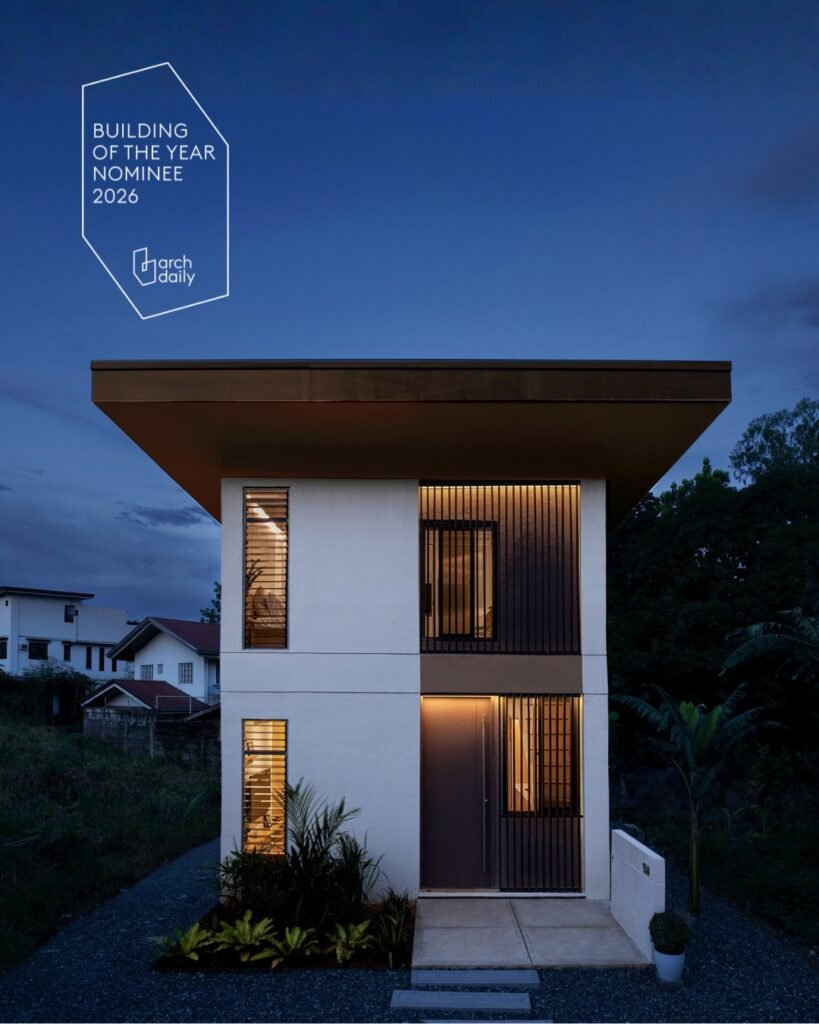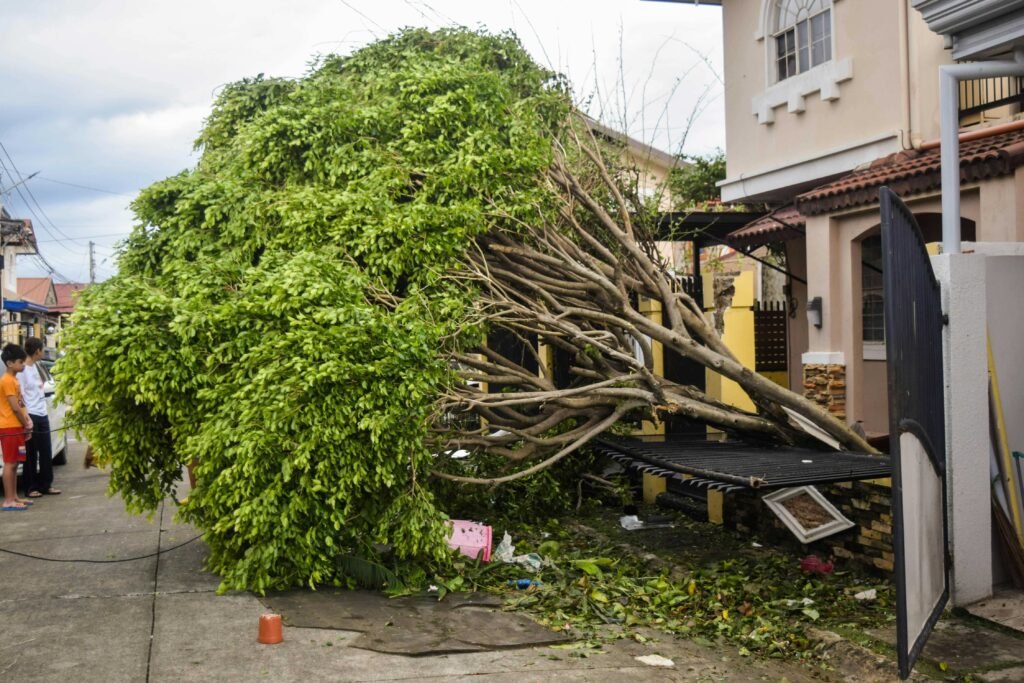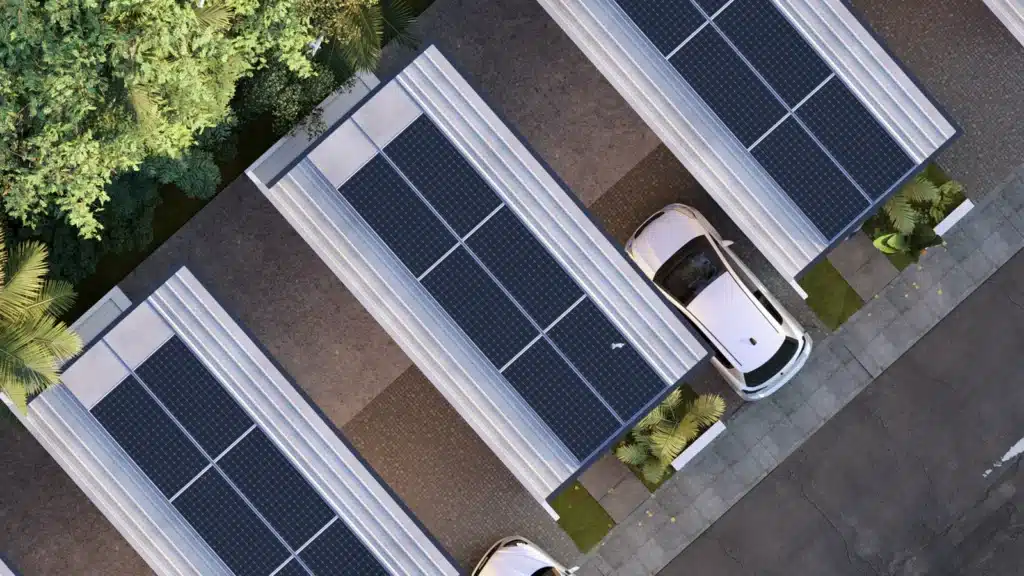Dive into Davao’s promising potential for sustainable living through the exploration of net-zero housing, sustainable construction materials, and sustainable architecture.
PHOTO: Lester Casio on Unsplash
Nestled in the heart of Mindanao, Davao captures the essence of Filipino culture amid its bountiful nature. This economic powerhouse of the Philippines offers a robust economy, favorable climate, and a rich historical-cultural fusion that sets the city apart.
Davao’s geographic location, with its rolling hills and mountains, sprawling coastline, and diverse flora and fauna, provides an ecological playground pivotal in creating sustainable living. Moreover, the significant cultural background embedded in the city’s core brings forward the essence of Davao in the national narrative.
Davao’s Sustainable Development Journey
Undeniably, Davao’s natural features and God-given characteristics are fitted to sustainable goals. Specifically, Davao’s high solar, wind, and geothermal potential poses exciting prospects for renewable energy.
The region’s abundant sunlight throughout the year facilitates massive solar energy production. Similarly, the favorable wind speed, especially in its highlands, can be instrumental in harnessing wind energy.
Moreover, Mindanao’s active geothermal areas open possibilities for geothermal power. Davao City itself is located near Mt. Apo, known for its substantial geothermal reserves. This further emphasizes an energy revolution centered on renewable sources.
Collaborative Geothermal Development
For one, AboitizPower has been actively involved in this initiative, focusing on the development of geothermal power in Mt. Apo. They have received support from local Indigenous People communities and government units for exploration in this area.
The exploration covers two significant areas within the Mt. Apo National Park: the Kapatagan contract area in Mt. Sibulan and the Tico contract area in Mt. Talomo, with the potential to produce about 200 megawatts of power. This project is currently in the exploration phase, which involves a detailed study of the area’s geothermal potential.
Hydropower Pioneering
Additionally, Davao City benefits from renewable energy through the operation of hydroelectric power plants like the Sibulan A Hydro and Sibulan B Hydro in Sta. Cruz, Davao del Sur, generating 16.5 MW and 26 MW of clean energy, respectively. These facilities have been essential in meeting the energy needs of Davao City and its surrounding areas, demonstrating a commitment to sustainable development and environmental preservation.
Fortunately, the city’s significant investments in environmental policies and sustainable initiatives have set the foundation for a greener future. With a keen eye on fostering local biodiversity, Davao has prioritized sustainable development. The intersection of public and private sectors further fortifies this movement, creating an environment conducive to sustainable projects.
Embracing the Net-Zero Reality: Davao’s Suitability for Sustainable Housing
Upon knowing its features and that it is a frontrunner in environmental resilience, Davao’s climate profile creates an ideal landscape for net-zero housing. The city’s reliance on local materials and construction techniques generates the potential for sustainable housing, reducing its carbon footprint while promoting a net-zero lifestyle.
Davao’s communal fabric reverberates with sustainable living practices, making the transition toward net-zero living a natural progression. Also, net-zero homes, designed to be energy-efficient and reduce greenhouse gas emissions, have the potential to capitalize on Davao’s renewable energy resources.
For example, utilizing bamboo, which is abundantly available in Davao, promotes sustainability. Bamboo is carbon-neutral, grows quickly, and offers substantial strength, making it a suitable construction material that is an alternative to steel. Combining these elements paves the way for a lower carbon footprint and increased sustainability.
Davao’s Model Partnership
In Davao, an initiative similar to Negros Oriental’s Kawayan Collective initiative is the partnership between the Base Bahay Foundation and Don Antonio O. Floirendo Sr. Foundation Inc. (AOFF). This collaboration focuses on providing sustainable housing for banana workers and their families in Davao, utilizing Base’s expertise in constructing durable, high-quality bamboo houses.
These homes are designed to be disaster-resilient, leveraging Base’s Cement Bamboo Frame Technology (CBFT) which is certified to resist typhoons and earthquakes, while also being treated for termite resistance. The project emphasizes environmental sustainability and resilience, utilizing bamboo—a renewable resource abundant in Mindanao—as a key construction material.
This initiative is a clear example of sustainable housing efforts in Davao, showcasing how local resources and innovative building technologies can be combined to create affordable, eco-friendly, and resilient homes.
Paving the Path for Sustainability in Davao
PHOTO: Lester Casio on Unsplash
While the pursuit of sustainable housing in Davao holds immense potential, challenges remain. Remote and rural areas often lack the necessary infrastructure and logistics for implementing net-zero housing. Furthermore, ensuring the economic feasibility of net-zero homes across all income brackets is a crucial hurdle.
The novelty of net-zero technology also plays a role, with its relatively recent introduction creating a learning curve for both builders and residents, potentially slowing adoption rates.
Embracing Opportunities
Yet, such challenges present opportunities for growth. Projects that address these logistical issues can create local jobs, promoting skill-building in sustainable construction. Additionally, potential subsidies and incentives from local administrations can make net-zero homes cost-effective for wider demographics.
Furthermore, educational initiatives can enhance public understanding and acceptance of net-zero benefits. This can gradually build a supportive community around sustainable living practices, paving the way for wider adoption and long-term success.
Success Tales of Sustainable Housing in Davao
Several initiatives worldwide can act as a beacon for Davao’s sustainable housing vision. One notable example is the net-zero model houses in Tacloban City and Cagayan de Oro, Philippines, which focus on building sustainable and secure spaces that can generate their own electricity. These projects highlight that sustainability need not compromise on affordability or comfort.
In addition, these homes are cost-effective, energy-efficient, and well-suited to the local climates and living patterns.
Moreover, these projects underline the potential for community engagement and employment opportunities arising from adopting a sustainable construction approach. They reinforce the scalability and replicability of sustainable housing models, offering Davao a guiding blueprint for its trajectory towards net-zero housing.
Davao’s Pioneering Spirit
Taking cues from these accomplishments offers valuable insights into the prospects and scalability of this sustainable initiative in Davao. As of now, Davao’s progressive sustainable housing tales include affordable and disaster-resilient homes for Davao-based banana workers, as led by Base Bahay Foundation (Base), a non-profit organization dedicated to providing affordable, disaster-resilient, and eco-friendly housing solutions in the Philippines, primarily using bamboo as a construction material.
Bamboo Breakthrough
Their pioneering work includes the development of the Cement Bamboo Frame Technology (CBFT), a construction method that utilizes bamboo to create structures capable of withstanding typhoons and earthquakes. This innovation not only offers a sustainable and durable alternative to traditional building materials but also leverages the abundant bamboo resources in the Philippines to address housing shortages.
Community-Centered Approach
Another significant sustainable housing project in Davao is spearheaded by the Eco Village Project, which focuses on creating a community centered around sustainable living practices. This initiative aims to construct eco-friendly homes using local, renewable resources and green technologies to minimize environmental impact.
The Eco Village Project integrates rainwater harvesting, solar energy, and waste recycling systems to promote self-sufficiency and reduce the carbon footprint of its residents. By fostering a community that values sustainability, the Eco Village Project serves as a model for environmentally responsible living and complements the region’s efforts towards sustainability, similar to the work done by Base Bahay Foundation.
These initiatives exemplify Davao’s progress in sustainable housing, illustrating how innovative building techniques and community-focused projects can collectively enhance the resilience and sustainability of urban and rural habitats.
The Road Ahead: Shaping a Sustainable Future
Davao, with its sustainability commitments, stands at the cusp of a transformation. It is up for grabs to seize this opportunity for a net-zero lifestyle through sustainable architecture and housing. The journey, while challenging, is undoubtedly rewarding, offering endless opportunities for innovation and growth in the realm of sustainability.
If you have a project in mind, we would love to hear about it and explore ways to work together. You may contact us here.
If you’re eager to delve deeper into sustainable living, we encourage you to explore another article that offers valuable insights. Check out: Weathering the Storm: Batanes’s Stone Houses as a Blueprint for Sustainable Living
Resources:
-
Mt. Apo Adventures. About the Mountain. Retrieved from https://www.mtapoadventures.com/about-the-mountain/
-
Krees de Guia. 5 Examples of Sustainable Construction Materials Flourishing in the US. Retrieved from https://billionbricks.org/updates/5-examples-of-sustainable-construction-materials-flourishing-in-the-us?rq=bamboo
-
Princess Catherine Pabellano. How BillionBricks Net Zero Homes Empower Vulnerable Communities in the Philippines. Retrieved from https://billionbricks.org/updates/how-billionbricks-net-zero-homes-empower-vulnerable-communities-in-the-philippines?rq=Philippines
-
BusinessMirror. Base to build sustainable homes for Davao-based banana workers. Retrieved from https://businessmirror.com.ph/2023/03/06/base-to-build-sustainable-homes-for-davao-based-banana-workers/
-
Sunstar. Aboitiz to explore Mt. Apo for geothermal energy sources. Retrieved from https://www.sunstar.com.ph/more-articles/aboitiz-to-explore-mt-apo-for-geothermal-energy-sources-.
-
Sunstar. Damosa Land to develop eco-friendly communities. Retrieved from https://www.sunstar.com.ph/davao/business/damosa-land-to-develop-eco-friendly-communities.
-
Aboitiz Power. Hedcor Group. Retrieved from https://aboitizpower.com/about-us/our-businesses/power-generation/cleanergy/hedcor-group.






